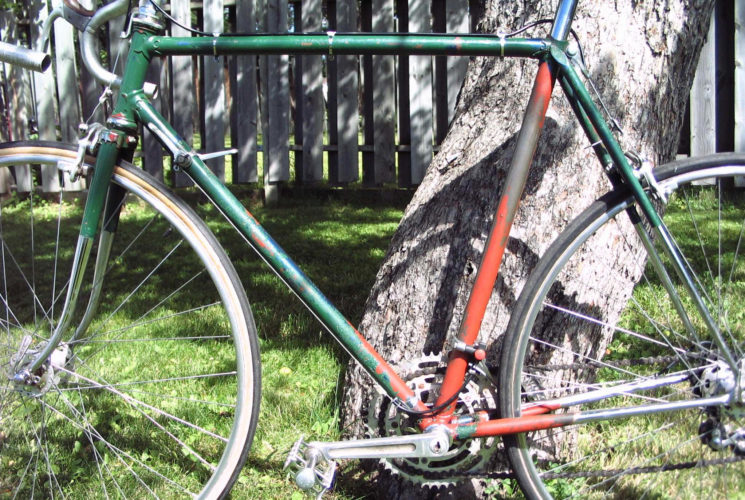October is Active Transportation Month (ATM) at WashU. The goal of ATM is to motivate staff, faculty, and students to kick the car habit and try active, low-carbon means of transportation. If you cannot imagine going car-free, consider carpooling or budgeting time to try transit one or two days during the month. If you are an everyday cyclist, try and commit to going grocery shopping or getting to and from the laundromat on two wheels. Whatever your commitment to active transportation is today, we ask that you step it up during the month of October!
This fall’s ATM begins on October 1 with a bike trip to Grove Fest, an annual event featuring street performers, live music, and great food from local Grove businesses. It continues with free bicycle tune-ups by Big Shark Bicycle Company on the Danforth and School of Medicine campuses.
A pivotal component of ATM is the Active Transportation Challenge, which offers the WashU community the chance to form cyclist teams and track their commutes in terms of miles logged, calories-burned, and CO2-saved. Last fall, 81 teams logged 931 car-free trips, and we hope that even more will participate this year!
Active Transportation Challenge teams will earn points for commute totals, attendance at events, and participation in a photo contest. All participants will receive a free t-shirt and an invitation to our awards ceremony lunch. Teams will also be eligible for trophies and other prizes based on points earned. To learn more and sign-up, click here.
SCHEDULE OF EVENTS
SATURDAY, OCTOBER 1
Bike trip to Grove Fest, 3-6pm
The Office of Sustainability and Outing Club are co-sponsoring the ride. Participants will leave from Brookings Hall on the Danforth campus. Helmets are required! To register, click here.
MONDAY, OCTOBER 3 / TUESDAY, OCTOBER 11
Free bike tune-ups by Big Shark Bicycle Company, 11am-2pm
North Side of Danforth University Center (in partnership with the Parking & Transportation Department)
TUESDAY, OCTOBER 4 / THURSDAY, OCTOBER 13
Free bike tune-ups by Big Shark Bicycle Company, 11am-2pm
Hope Plaza, School of Medicine (in partnership with the School of Medicine’s Transportation Services)
FRIDAY, OCTOBER 14
Coffee for Commuters, 8-9:30am
Danforth University Center, Room 234
FRIDAY, NOVEMBER 4
Active Transportation Challenge Awards Ceremony, 11:30am-1pm
Danforth University Center, Room 239
Don’t forget: Pairing up your activities with the WashU Moves Challenge will also set you on your way to healthy and sustainable habits!
Content from the WashU Sustainability blog
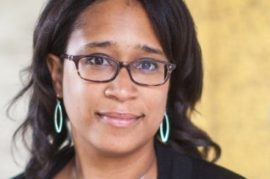



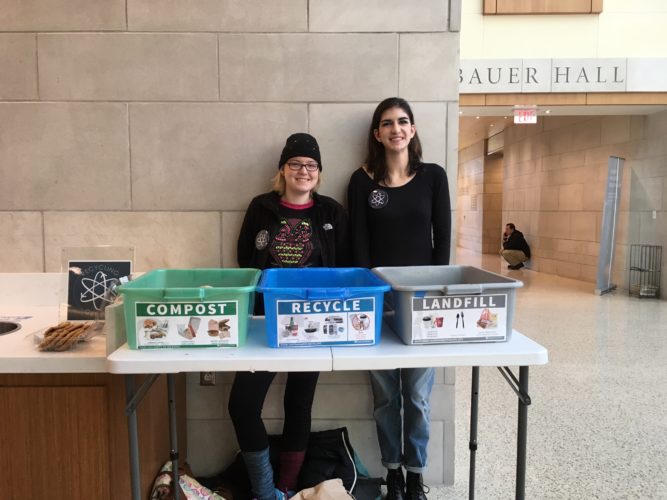
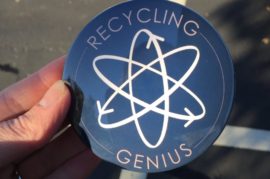 Abbie and Hanusia (pictured above), Recycling Geniuses from the Office of Sustainability, shared their wisdom near a recycling bin in Bauer Hall before semester break. I felt terribly guilty when I learned that I have been contaminating the recycling process, but they assured me I was not alone. In fact, a lot of people on campus have been confused by the multiple options for discarding waste, according to our resident Geniuses.
Abbie and Hanusia (pictured above), Recycling Geniuses from the Office of Sustainability, shared their wisdom near a recycling bin in Bauer Hall before semester break. I felt terribly guilty when I learned that I have been contaminating the recycling process, but they assured me I was not alone. In fact, a lot of people on campus have been confused by the multiple options for discarding waste, according to our resident Geniuses.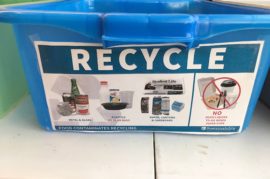 Unfortunately, the confusion has lead to heavy contamination of campus waste – so much so that the hauling company has rejected our trash on a regular basis. And that leads to expensive fees and undermines our waste diversion efforts.
Unfortunately, the confusion has lead to heavy contamination of campus waste – so much so that the hauling company has rejected our trash on a regular basis. And that leads to expensive fees and undermines our waste diversion efforts.
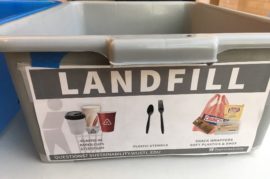 To clear up the confusion and clean up our recycling habits, the Office of Sustainability has created new, easy to decipher signs and
To clear up the confusion and clean up our recycling habits, the Office of Sustainability has created new, easy to decipher signs and 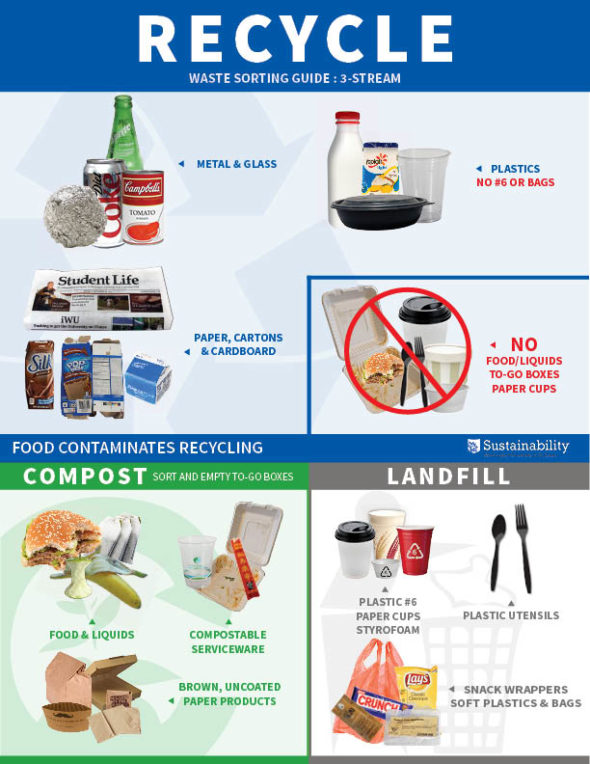

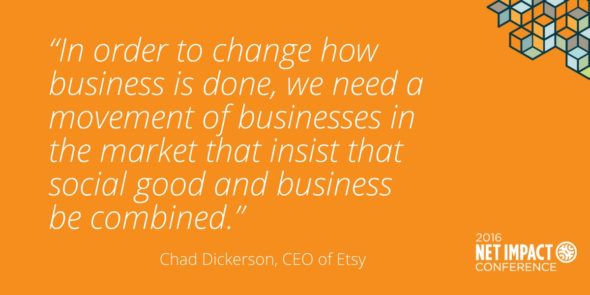 However, my most poignant realization at the conference came when I realized who surrounded me in the audience. In particular, those sitting within my row. Of course everyone at the Net Impact Conference had the passion, energy, and ability to make communities stronger and the world a better place. But some of the biggest heroes in my life are the ones that I see on the frontlines every day, working to continue shaping the Olin Business School, the Washington University community, and the city of St. Louis.
However, my most poignant realization at the conference came when I realized who surrounded me in the audience. In particular, those sitting within my row. Of course everyone at the Net Impact Conference had the passion, energy, and ability to make communities stronger and the world a better place. But some of the biggest heroes in my life are the ones that I see on the frontlines every day, working to continue shaping the Olin Business School, the Washington University community, and the city of St. Louis.

